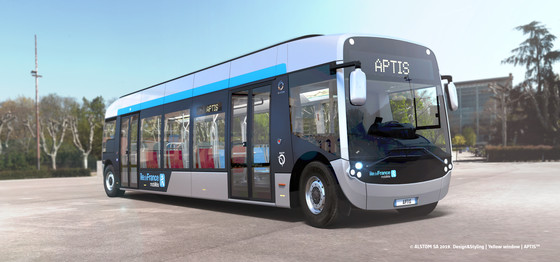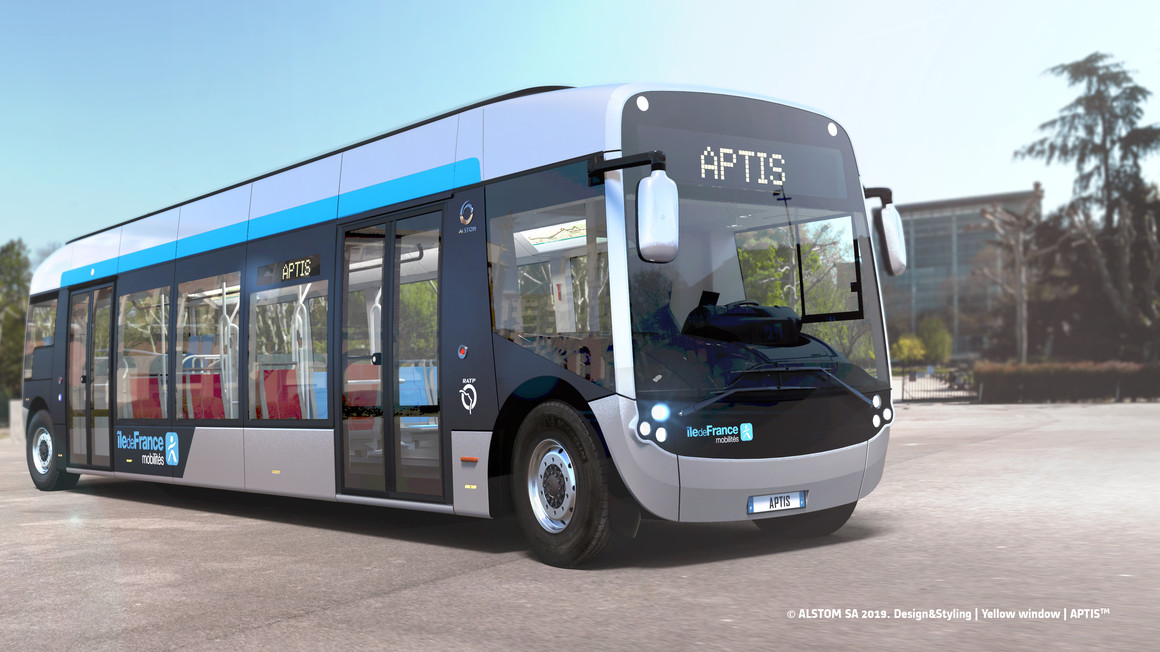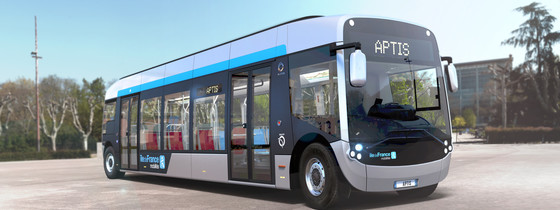
Alstom’s Aptis is selected in the context of Europe’s largest tender for electric buses
Alstom’s Aptis is selected in the context of Europe’s largest tender for electric buses

Press contact - France Great East
Arnaud Zeisser
Send an email20 May 2019 - Alstom is one of the three winners of the largest European call to tender for electric buses launched by the RATP and 100% financed by Île-de-France Mobilités. The first firm tranche is for 50 buses. The amount of the framework contract could reach 133 million euros. These Aptis buses, 12 metres long, will play a role in the massive renewal of the bus fleet of the Île-de-France network. This order follows that of CTS, the Strasbourg transport company, for 12 vehicles.
Thanks to its innovative design, Aptis offers an unparalleled passenger experience. Its berthing system for perfect alignment with the pavement, its fully low and completely flat floor and wide double doors permit easy circulation and convenient boarding for people with reduced mobility and prams. Equipped with large bay windows, Aptis offers 25% more windowed surfaces than a standard bus, and a seating area at the back with panoramic views of the city.
"We are very proud to be involved in making the Île-de-France region a global reference in clean urban road transport. This tender is major and key for Aptis, our 100% electric mobility solution designed by Alstom's teams at the Hangenbieten and Reichshoffen sites in Alsace. We are delighted by the confidence shown in us by the RATP and Île-de-France Mobilités," says Jean-Baptiste Eyméoud, President of Alstom in France.
The vehicles ordered by the RATP are designed for slow charging, at night in the depot. Aptis is also available for charging at the end of each line whenever necessary, using ground-based charging solutions (SRS) or charging through the top.
Aptis was designed to have an optimised total cost. This is possible thanks to reduced maintenance and operating costs and a longer service life than that of a standard bus. Its total cost of ownership is equivalent to that of a current standard diesel bus over a 20-year period.
Since September 2018, Aptis is also referenced by the CATP, the French central procurement office for public transport, in its electric bus offer destined for public purchasing by local authorities. This referencing allows member authorities to order Aptis vehicles directly and simply from the CATP, without the need for long and costly procedures.
Since the prototype was presented in March 2017, more than 40,000 kilometres have been covered in real operating conditions by four test vehicles in France[1] and in Europe[2]. These trials have made it possible to test the characteristics of Aptis, inspired by the tram, in a new context, its insertion performances[3], its capacity for autonomy, and its driving assistance system. Aptis won the Innovation Award at the Busworld trade show in 2017. It also received the official certificate Origine France Garantie in January 2019. This certificate guarantees that more than 60% of Aptis' added value is French.
Manufacturing and testing will be carried out at Alstom's two sites in Alsace. The Hangenbieten site is responsible for manufacturing the end modules (driver's cabin and rear seating area); the manufacture of the central passenger module, final assembly and tests will be carried out at the Reichshoffen site. This plan will enable serial production from the third quarter of 2019, drawing on the expertise of the teams and using the production facilities and surfaces available on each site.
Five other Alstom sites in France are involved in the design and manufacture of Aptis: Saint-Ouen for the system integration, Tarbes for the traction, Ornans for the motors and Villeurbanne for the electronic components of the traction chain. Finally, Alstom’s site in Vitrolles is developing one of the charging solutions (SRS).
[1] Paris (RATP lines 21 and 147), Lyon, Strasbourg, Marseille, La Rochelle, Nantes, Le Mans, Orléans, Versailles, Lourdes, Toulon, Tarbes, Grenoble and Montpellier.
[2] Belgium, Germany, Holland, Spain, Italy.
[3] Optimised use of surface area in turns (-25% compared to a conventional bus)
